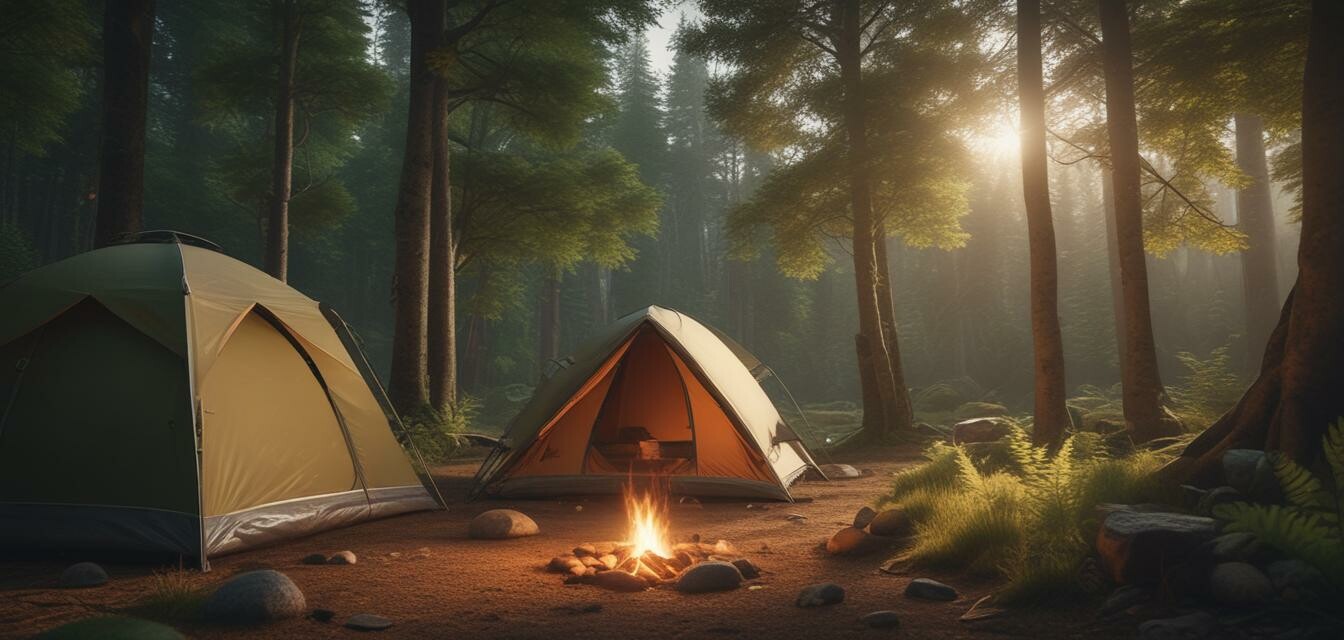
Staying Safe from Insects While Camping
Key Takeaways
- Insect repellent products are essential for protecting against bites.
- Choosing the right campsite can minimize insect exposure.
- Utilizing proper tent setup can keep bugs outside.
- Maintaining cleanliness helps deter insects from your camping area.
- Awareness of local insects can aid in prevention strategies.
Camping is a wonderful way to connect with nature, but it also brings the potential for encounters with insects. For beginners, this can be a daunting thought. However, there are multiple strategies to ensure your outdoor adventures are both enjoyable and bug-free. In this article, we’ll explore effective techniques, essential products, and tips for keeping insects at bay.
Understanding the insect threat
Before diving into prevention strategies, it’s crucial to understand the types of insects you might encounter while camping. Common pests include:
- Mosquitoes
- Ticks
- Ants
- Flies
- Bees and wasps
Each of these insects poses unique challenges and knowing them can help you prepare adequately.
Effective strategies for staying safe from insects
1. Use insect repellents
Applying insect repellent is one of the most effective ways to create a barrier against pests. Here are points to consider:
- Choose a repellent that contains DEET, picaridin, or oil of lemon eucalyptus for optimal protection.
- Apply it generously and reapply as directed, especially after swimming or sweating.
- Always follow product instructions carefully for the best results.
2. Dress appropriately
Your clothing can be your first line of defense:
- Wear light-colored long sleeves and pants to make it harder for insects to spot you.
- Consider clothing treated with permethrin, which can repel and kill insects.
- High shoes and thick socks can protect your legs from ticks.
3. Choose the right campsite
When planning your camping trip, consider these tips for site selection:
- Avoid camping near still water where mosquitoes breed.
- Set up camp in areas with natural barriers like rocks or shrubs to deter insect presence.
- Look for locations that are cooler and breezier, as insects are less likely to thrive in these conditions.
Utilizing proper tent setup
Your tent is your sanctuary against bugs:
- Make sure your tent has a good, intact screen to keep insects out.
- Seal any gaps or openings where insects might enter.
- Consider using a tent footprint to elevate the base or a clean tarp beneath your tent.
Maintaining cleanliness while camping
Insects are often attracted to food, so proper hygiene is key:
- Store food in airtight containers to prevent attracting ants and other pests.
- Clean up regularly and dispose of waste properly.
- Keep your cooking area clean and ensure leftovers are stored away.
Awareness of local insects
Researching the area you plan to camp in can save you from potential issues:
- Be aware of which insects are most common in the area.
- Understand the seasons and times of day when certain insects are most active.
- Know about local insect species that may pose health risks, such as ticks carrying Lyme disease.
Pros
- Effective insect protection allows for a more enjoyable camping experience.
- Knowledge of local insects enhances overall safety.
- Proper camping setup can lead to fewer insect encounters.
Cons
- Some insect repellent products may have strong scents or chemicals.
- Insects are sometimes unpredictable despite prevention efforts.
- Campsite selection may limit some ideal locations for camping.
Essential insect protection products
Equipping yourself with the right products can make a difference:
| Product Type | Description | Benefits |
|---|---|---|
| Insect Repellant | Sprays or lotions that deter insects. | Creates a protective barrier on skin. |
| Insect-proof Tents | Tents made with quality mesh material. | Blocks insects from entering your sleeping space. |
| Permethrin-treated Clothes | Clothing infused with insect-repellent chemicals. | Offers additional protection through fabric. |
Conclusion
Camping doesn’t have to come with the worry of insect bites and discomfort. By understanding the types of pests you might encounter, utilizing effective products, and maintaining good practices, you can ensure a safe and enjoyable outdoor experience. Don’t let insects ruin your adventures—implement these strategies to create a bug-free campsite.
For more tips on first-time camping experiences, check out our Camping Tips and Tricks section. Also, explore how you can set up your tents and shelters effectively to safeguard against insects!